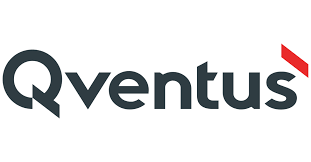
What You Should Know:
– Qventus, a leading provider of AI-based care automation software for health systems, today announced a $105 million investment led by global investment firm KKR, with additional participation from world-renowned investment firm Bessemer Venture Partners, and new strategic investors, including leading health systems Northwestern Medicine, HonorHealth, and Allina Health.
– Qventus has built an AI-first care operations automation platform deployed across leading health systems in inpatient and outpatient settings. This funding accelerates the Company’s ability to provide AI-based automations and AI operational assistants in more care settings, building upon the success of its existing offerings like Qventus’ Surgical Growth and Inpatient Capacity solutions as well as new solutions built on its first-to-market AI Operational Assistants platform capability.
Revolutionizing Healthcare Operations: Qventus Secures Funding to Expand AI-Powered Solutions
Healthcare systems face escalating challenges from outdated, manual, and fragmented administrative processes. Despite having state-of-the-art therapies, equipment, and skilled clinicians, these inefficiencies—spanning scheduling, workflow management, and other administrative tasks—contribute to soaring operational costs, staff burnout, and reduced productivity. Addressing these systemic issues has become critical for health systems seeking to deliver exceptional patient care while achieving sustainable margins.
Qventus’ Transformative Impact
Since its founding in 2012, Qventus has developed a suite of AI-driven solutions designed to alleviate the administrative burden on healthcare teams, enabling them to focus on patient care. Key achievements include:
• Inpatient Efficiency Gains: The Inpatient Solution reduced over 36,000 excess hospital days in 2024 alone, saving millions of dollars and creating capacity to treat more patients.
• Surgical Growth: The Perioperative Solution generated $95 million in annualized contribution margins in 2024 by driving strategic surgical volume, including a 35% increase in robotic cases through optimized scheduling.
• Enhanced Team Productivity: Qventus’ AI Operational Assistants increased team efficiency by up to 50%, identifying upstream issues, surfacing actionable insights, and automating workflows across care settings.
Commitment to Innovation
Recent funding from KKR’s Next Generation Technology III Fund will enable Qventus to expand the development and commercialization of its AI solutions into new care settings. The company aims to build on its existing capabilities in surgical growth and inpatient capacity management, enhancing its ability to address operational pain points.
Qventus’ innovative platform has demonstrated significant results across health systems:
• Its solutions touched over 500 million surgeries in 2024, improving access to critical care for patients.
• It received an industry-leading KLAS score of 92.5% in capacity management, with 100% of clients incorporating Qventus into long-term plans.
• Frost & Sullivan recognized Qventus with the Best Practices Customer Value Leadership Award for delivering best-in-class solutions that achieve over 10x return on investment for hospital partners.
Qventus CEO and Co-Founder, Mudit Garg, emphasized the company’s commitment to transforming healthcare operations: “This funding validates our decade-long effort to build AI automation solutions that reduce administrative burdens, enabling healthcare teams to deliver reliable patient care. It positions us to accelerate growth, deliver on partner commitments, and launch groundbreaking technologies that redefine healthcare efficiency.”
As Qventus expands its global presence and strengthens its partnerships, it remains focused on empowering healthcare teams with cutting-edge AI solutions that drive sustainable improvements in efficiency, patient care, and operational outcomes.

